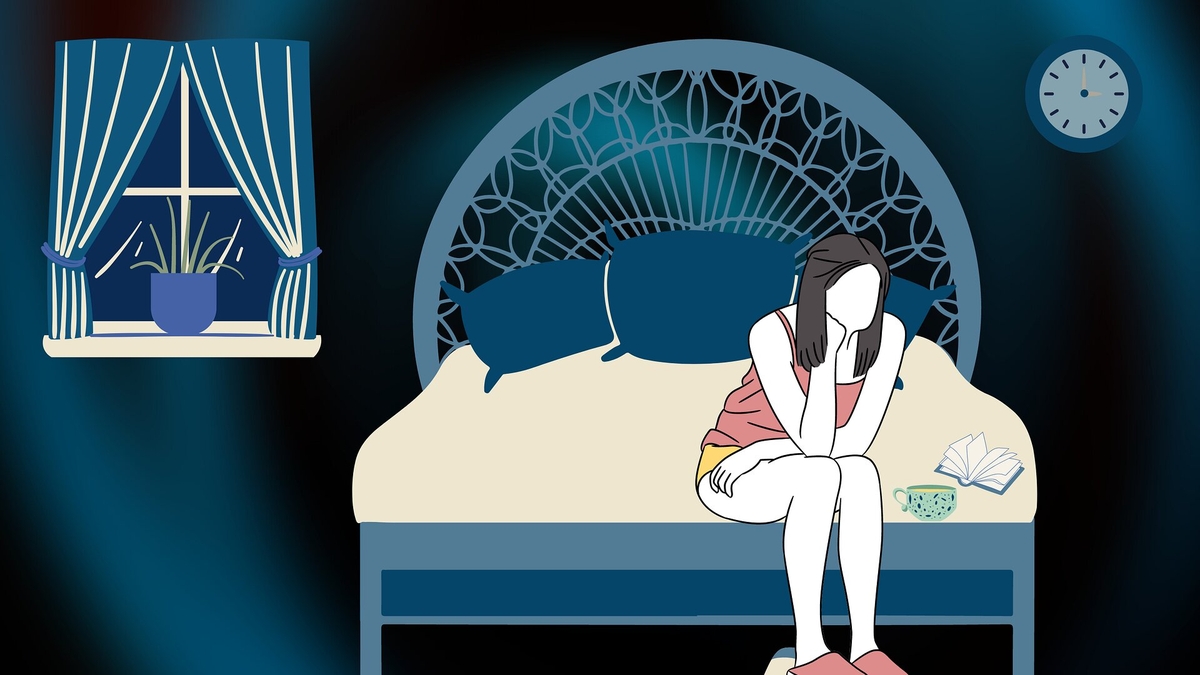
Recent research evidence suggests that problems with sleep and internal body clock, also known as circadian rhythms, can trigger or worsen psychiatric disorders. This important study underlines the need to understand the relationship between sleep, circadian rhythms, and mental health in order to develop comprehensive treatments for mental health problems.
The Prevalence of Sleep Disturbances in Psychiatric Disorders
According to the study, insomnia is more common in people with mental health disorders than in the general population. In fact, it is indicated that 32 percent of patients with bipolar disorder experience Circadian Rhythm Sleep Wake Disorders (CRSWD), which means they go to sleep and wake up later than usual. Moreover, sleep problems are often seen as the first signs of numerous mental health issues, including anxiety, depression, schizophrenia, PTSD, and ADHD. It is clear that sleep disturbances play a critical role in the onset and progression of mental health disorders.
The Mechanisms Behind Sleep-Circadian Disturbances
The researchers examined a multitude of potential mechanisms behind sleep-circadian disturbances in psychiatric disorders. These include physiological changes in sleep patterns, behavioral changes, the role of genes, exposure to light, and neuroplasticity. Interestingly, they found that disruptions in the natural sleep-wake cycle have a profound impact on both sleep quality and timing, which in turn significantly affect mental health.
The Impact of Sleep-Circadian Interventions
Addressing sleep-circadian disturbances presents an opportunity to develop new preventative measures and therapies for psychiatric disorders. Cognitive Behavioral Therapy for Insomnia (CBT-I) has been shown to reduce anxiety and depressive symptoms, as well as trauma symptoms in people experiencing PTSD. Light therapy has also been found effective in treating depression. Furthermore, the timing of medication, meals, and exercise could potentially impact circadian phases and consequently improve mental health.
New Treatments and Personalized Interventions
Based on the findings, the researchers suggest new treatments and personalized interventions tailored to individual circadian parameters. These innovative treatments include digital Cognitive Behavioural Therapy for Insomnia, light therapy, and melatonin. A particularly promising approach is the Transdiagnostic Intervention for Sleep and Circadian dysfunction (Trans C), a multicomponent intervention specifically designed to address sleep-circadian disturbances.
Considerations for Everyday Life
Given the profound impact of sleep-circadian disturbances on mental health, it is crucial to consider various lifestyle factors. Night shift work can adversely affect mental health, but eating during the daytime rather than at night could help prevent mood impairment. It is also recommended to maintain good sleep hygiene and to consult a specialist for severe sleep problems. Moreover, it’s important to be aware that the use of wearable sleep trackers may result in less restful sleep, leading to a condition called orthosomnia.
In conclusion, this research provides invaluable insights into the complex relationship between sleep, circadian rhythms, and mental health. The findings suggest that addressing sleep-circadian disturbances could be a key factor in preventing and treating psychiatric disorders. As our understanding of these connections deepens, we can look forward to the development of more effective, holistic treatments for mental health problems.
